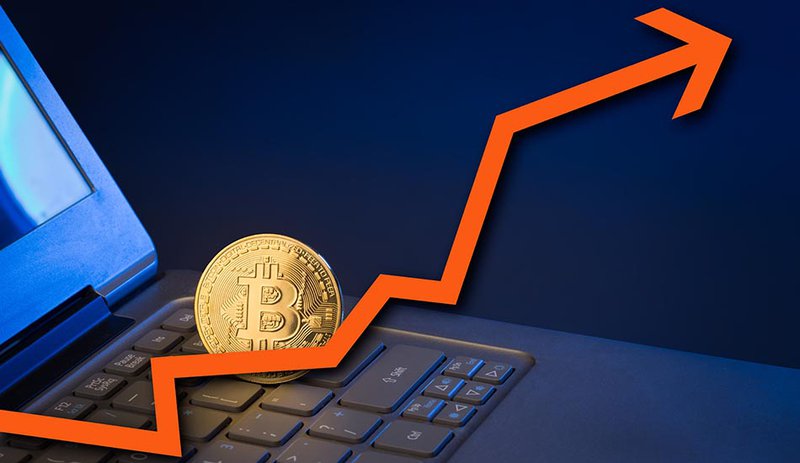
2021-10-23 05:30 |
A future powered by digital assets is assured as governments around the world look to technology for economic progress.
Whether or not you’d believe inflation could reach World War II levels, it’s clear that the global economy post-COVID-19 looks uncertain. A chasm is growing between the developed and developing markets fueled by uneven vaccination rates and Gross Domestic Product growth. Central Bank Digital Currencies (CBDCs) are set to be a key factor that’ll accelerate the world economy fit for the digital age, ushering in a digitally-connected economy unlike anything we’ve seen before.
Despite inflation being slowly on the rise, depressed economies like the U.S. are accelerating in their adoption of new economic policies like Modern Monetary Theory (MMT), which in a nutshell enables governments to print money at will. Basically, wealthier governments aren’t required to be reliant on taxes or borrowing when it comes to spending as they’re able to print money on demand. The stellar rise of MMT, particularly advocated by an economy with as much impact as the U.S., sends ripple effects that not only affect the U.S. but other economies as well. In Asia, governments – particularly in mid- and small-sized economies – are waking up to the potential power and influence that CBDCs have thanks to their latest understanding of MMT.
CBDCs draw influence from bitcoin, and bitcoin itself has transformed the public's perception about money and alternative asset investments. In fact, many today consider it a hedge for inflation. Recently, crypto companies are increasingly coming under scrutiny with government action ramping up as the public’s interest in crypto has made way for governments that are beginning to recognize the plurality of bitcoin’s co-existence with fiat currency.
In fact, COVID-19 has accelerated an urgency to strike a balance on how this coexistence might look. Governments are looking for ways to employ an effective monetary policy that gives them more rights, with less reliance on the dollar for trade. As CBDCs hold a 1:1 value to fiat currency, they not only hold the benefits of faster, but also more secure transactions thanks to the use of blockchain technology. And for the public, it’s the ideal vehicle to boost consumption, and combat money laundering, while enabling a more effective tax collection policy. China is leading this development with its digital renminbi (DCEP) and it aims to improve financial inclusion and risk control.
In Southeast Asia, we’re also witnessing the emergence of a similar train of thought among governments. Cambodia’s Bakong, a blockchain payment system, is being devised as its own CBDC with the goal of helping central bankers to lower the cost of international remittances. And this distributed technology ledger system is a model that even the chief fintech officer at the Monetary Authority of Singapore (MAS), Sopnendu Mohanty, believes will benefit international payment schemes as well.
Let’s put it this way: Most wealthy nations’ monetary policy has remained accommodative with quantitative easing continuing in the backdrop. And statistics have shown that the U.S. Federal Reserve printed $2.3 trillion in 2020 to combat COVID-19. Admittedly, the stimulus was for a noble cause; it would keep families and communities afloat.
However, how we define the success of this program isn’t black and white with unintended effects. According to a survey by Pew Research Center, “About one in five (21%) say they will save a majority of the money, and 14% say they will use it to pay off debt. The remaining 10% say they’ll use it for something else.” Flush with cash, stimulus money was hitting Wall Street close to home with the hyper enthusiasm of buying stocks like GameStop and altcoins like Dogecoin. This exposed the already fragile financial system and raised valid questions about the efficacy of government aid programs, along with its impact on MMT in the long run.
Not to mention, the U.S.’s policy has triggered an unintended ripple effect that has had drastic consequences for emerging Asian markets - particularly in Southeast Asia. With the stimulus fueling a strengthening influence of the dollar, emerging markets risk weakened currencies against the greenback and falling deeper into debt.
It’s situations like these where a CBDC can come into the picture. In the case of helping those in need with precision, CBDC-based stimulus can ensure that the spending of the stimulus money is aligned with its original purpose, which means families and communities have access to basic necessities. And the progress of these programs can be measured in real time. In short, CBDC can become a viable option for the government to subsidize an industry or community with higher precision, transparency, and effectiveness.
With increasing scrutiny from the world, the perception that the U.S. is losing its fiscal responsibility is growing according to the Council on Foreign Relations. The Council argues that “investors could lose confidence in Washington’s ability to right its fiscal ship and become unwilling to finance U.S. borrowing without much higher interest rates.” This perception endangers the dollar’s global acceptance and of course, means self-reliance, especially in the developing world, is more important than ever.
So how does bitcoin come to play a role in all of this? On a more extreme, yet seemingly realistic alternate reality, considering the disastrous outcomes like what we’ve seen in Venezuela when its economy experienced hyperinflation in May 2019, bitcoin tends to become the de facto tool to counter sovereign credit risk. And governments themselves recognize this. The El Salvadoran government in 2021 recognized bitcoin as its legal tender. Other countries of course have taken a more centralized strategy by deploying their own CBDC. But regardless of the currency used, the motives are one and the same. Whether it’s bitcoin or a government-backed digital currency, both offer tremendous value (albeit in different ways) to the digital economy, with more ways yet to be discovered.
As signs of an economic recovery make way for inflation, we’re sitting closer and closer to the edge and could tip over into a global financial crisis. And I’m not the only one concerned. Satyajit Das from MarketWatch poignantly draws the conclusion that “where supply constraints are reached, excessive deficit-financed spending would result in inflation, higher rates, and a currency correction.” So, all it takes is for the Federal Reserve to increase the interest rate. By then, the dominoes in Asia - not just in the U.S. or the West - inevitably will topple.
So, there’s no surprise that those developing countries have the best position to lead the charge toward a new digital currency and offset the risk. Whether the solution is a national CBDC or the adoption of cryptocurrencies like bitcoin may be up to a regional decision, but what I’m certain about is that the digital economy is inevitable. It’s just a matter of when.
This is a guest post by Flex Yang. Opinions expressed are entirely their own and do not necessarily reflect those of BTC, Inc. or Bitcoin Magazine.
origin »Bitcoin price in Telegram @btc_price_every_hour
Molecular Future (MOF) íà Currencies.ru
|
|

























